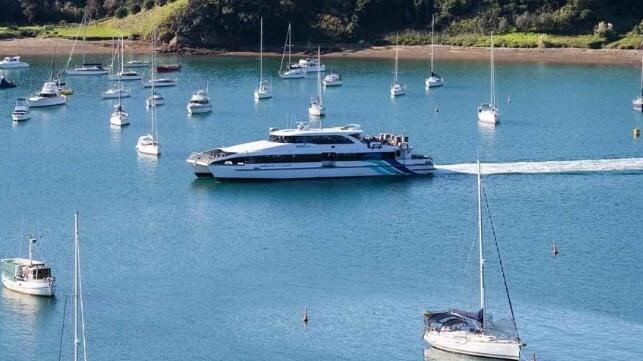Labor Shortage Forces Suspension of New Zealand Ferry Service

An acute labor shortage in New Zealand has caused the suspension of critical ferry services in Auckland over the next 18 months to enable authorities to work with a private operator to implement an accelerated crew training program. It is an issue that is broadly impacting the maritime industry with the ferry system in Alaska also highlighting its crew shortages and analysts warning that the problem will grow to more portions of the industry.
Auckland Transport, which oversees public transportation in the city of 1.6 million people in the metro area, announced the suspension of three ferry services currently operated by a private company Fullers360 for the city. The company had extended its contract with Auckland Transport to maintain the service but effective October 1 will no longer operate the Birkenhead, Te Onewa Northcote Point, and Bayswater routes along the inner harbor. There will likely be an extended disruption while the city hopes to find a new operator in the future. Service on two other routes, to Gulf Harbour and Half Moon Bay, will also be scaled down with full resumption expected in the next 14 to 18 months after an accelerated training program is complete.
The impact on ferry service further exposes the extent of the labor crisis in the country where over 90 percent of organizations are experiencing a shortage of appropriately skilled workers. Fullers360, alongside other travel and tourism operators, is among organizations that have been badly impacted by the country’s labor shortage which has been extremely severe in the freight and logistics sector. While currently, the sector is experiencing a shortage of 4,700 skilled workers, projections indicate the gap will widen to 18,000 workers by 2028 unless immediate interventions are implemented. New Zealand authorities have announced that more broadly, the country will require over 75,000 international workers, ranging from nurses to teachers and mechanics to tackle the labor crisis in the immediate future.
Fullers360, which operates a fleet of 21 ferries, reports that it was transporting about 5.5 million passengers annually. The company said that there is no “quick fix” to resolving the maritime skills shortage but working with the New Zealand authorities they look to accelerate training. The goal is to promote 10 to 15 deckhands to the role of skipper while 10 to 15 people currently in on board service and deck roles will also be trained to become deckhands.
“With support from Auckland Transport to redistribute our resources to accelerate training and development, we will be able to progress up to 30 qualified crew to either deckhand or skipper in the next 14 – 18 months. These numbers are significant in helping us to achieve a full crewing workforce at a faster pace,” said Mike Horne Fullers360, CEO.
He added that alongside the ferry operator’s domestic and international recruitment efforts, and the improved residency pathways for skilled maritime workers, the accelerated training program will additionally provide solutions to the country’s shortage of skilled maritime workers through building the future pipeline of New Zealand marine talent.
It is an issue that is beginning to appear more broadly in the maritime industry made worse by the pandemic and in the ocean-going segment especially the war between Russia and Ukraine.
Half a world away, the Alaska Marine Highway System, which has a fleet of 10 ferries providing vital transport services is also citing labor shortages. The company currently said it has one vessel laid up due to labor shortages. During the peak summer travel season, they have been forced to extend shifts and “hold people over,” due to shortages in all areas from the deck to the engine room and the bridge. They recognize that they are risking “burnout” of personnel.
Due to the shortage, AMHS told a reporter at KTUU Anchorage, the system considered suspending the operation of another vessel. Short term they are trying to bring back some recent retirees and offering signing bonuses. Like New Zealand, the Alaska system is also working on training to expand the workforce.

